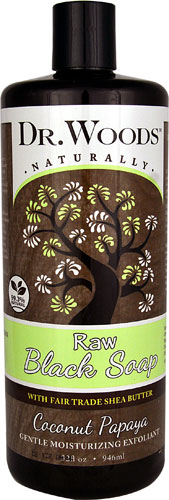 For a bit of context, the U.S. lags in cosmetics regulations. More than 80 countries have enacted rules regarding the safety of cosmetics and personal care products. Some of these nations have restricted or completely banned more than 1,600 chemicals from cosmetic products, whereas the U.S. has only nine banned or restricted chemicals (and parabens are not included in that list).
But there is reform a‘coming. At the end of 2022, President Biden signed into law the Omnibus Spending bill, which included the Modernization of Cosmetics Regulation Act of 2022 (MOCRA), the first time federal cosmetics law has been updated in over 80 years. Several states, such as California and Maryland, have enacted laws that will go into effect in January 2025, banning additional chemicals (including two types of parabens) based on the growing observational evidence against them.
Additionally, major retailers in the U.S. have planned or already have in place active bans or restrictions. Leading the way, in 2008 Whole Foods Market banned all four parabens as part of its premium body care standard. Just over a decade later, in 2019 CVS removed parabens in CVS store brand products. The Target Clean label, introduced in 2020, denoted that beauty, personal care and baby products with that label would be free of parabens as well several other chemicals.
For a bit of context, the U.S. lags in cosmetics regulations. More than 80 countries have enacted rules regarding the safety of cosmetics and personal care products. Some of these nations have restricted or completely banned more than 1,600 chemicals from cosmetic products, whereas the U.S. has only nine banned or restricted chemicals (and parabens are not included in that list).
But there is reform a‘coming. At the end of 2022, President Biden signed into law the Omnibus Spending bill, which included the Modernization of Cosmetics Regulation Act of 2022 (MOCRA), the first time federal cosmetics law has been updated in over 80 years. Several states, such as California and Maryland, have enacted laws that will go into effect in January 2025, banning additional chemicals (including two types of parabens) based on the growing observational evidence against them.
Additionally, major retailers in the U.S. have planned or already have in place active bans or restrictions. Leading the way, in 2008 Whole Foods Market banned all four parabens as part of its premium body care standard. Just over a decade later, in 2019 CVS removed parabens in CVS store brand products. The Target Clean label, introduced in 2020, denoted that beauty, personal care and baby products with that label would be free of parabens as well several other chemicals.
Dr. Woods Naturally Raw Black Soap With Fair Trade Shea Butter Coconut Papaya Description
-
With Fair Trade Shea Butter
-
Gentle Moisturizing Exfoliant
-
99.3% Natural
-
Cruelty Free
-
Gluten Free • 100% Vegan
-
Paraben and Phthalate Free
-
Lauryl / Laureth Sulfate Free
-
No Petroleum Derivatives
Dr. Woods Raw Black Soap
Our Black and Castile Soaps are safe and effective for hundreds of household uses, but specially formulated for gentle, natural skin care.
Dr. Woods Coconut Papaya Black Soap's aromatic fragrance sends your senses to a tropical paradise, while leaving your skin smooth, hydrated and healthy. Our unique formula is a gentle exfoliant and a powerful, deep cleanser that rejuvenates the skin without any need for harsh detergents or toxic additives.
Made from plantain skins, palm kernel oil and shea butter, Black Soap is an abundant source of skin-nourishing nutrients A, E and iron in a unique formulation that provides a luxuriously rich and gentle all-purpose cleanser for your face and body.
We offer our Fair Trade Organic Shea Butter, one of Nature's most effective and versatile Healthy & beauty resources, across all Dr. Woods Black and Castile Soaps. Sustainably harvested from the nut of the Karite Shea Tree, indigenous to Ghana, our Shea Butter is a bountiful source of Vitamins A and E, as well as essential fatty acids to soothe and balance your skin. We use She Butter in its purest form - Raw and Organic - in order to retain its highest level of therapeutic and healing properties.
All Things Good
For Our Family...And Yours.
Dr. Woods is a family business born from our own passionate quest to produce the finest and most effective Health & Beauty products in the world. Our family is wonderfully diverse with different ages, skin types, hair textures and styling nee3ds, so creating truly healthy, highly effective products that work for all of us was an inspiring challenge... and with diligence, creativity and lots of love, we created the most beneficial and environmentally sustainable products available.
Dr. Woods draws on the very best time-tested healing traditions together with modern formulation process. We choose to keep our products as natural as possible, without compromising effectiveness, using the best pure ingredients from around the world and never strip away your skin's natural elasticity. We've also worked incredibly hard to make our products truly affordable so good health and exceptional quality are accessible to everyone.
Our family is deeply proud of the products we make and it is a great honor to share them with yours.
*These statements have not been evaluated by the Food and Drug Administration. This product is not intended to diagnose, treat, cure, or prevent any disease.
For external use only. Please avoid contact with eyes.



